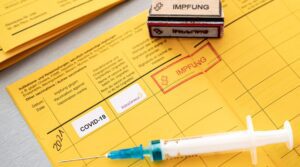
Land prices and the balance of its supply and demand will be established after 2024, when legal entities (including large agricultural holdings) will be able to buy land, then a full-fledged agricultural land market will appear in Ukraine.
This opinion was expressed to the Interfax-Ukraine agency by the co-founder of the Land Club association of land investors, Oleksandr Kolotilin.
He clarified that all large agricultural holdings with which his organization works intend to buy agricultural land leased by them.
“We work with large agricultural holdings. I can say that all the companies we talked to intend to buy agricultural land that they lease and cultivate. I cannot name them, since many of them are public companies, and they must declare themselves their position and intention to purchase land or plans in 2024. But all large agricultural holdings are making exactly such plans,” Kolotilin said.
According to the data on the Land Club website, the founder of the investment organization is the director general of IMC agricultural holding and the president of the Ukrainian Agribusiness Club, Alex Lissitsa. The project offers investors the purchase of land plots leased by agricultural holdings in order to receive guaranteed rent from them.
Earlier, MHP Financial Director Viktoria Kapeliushna announced that her company was not interested in buying land. She noted that the economic model of the agricultural holding includes work on the leased land, and in the event of a change in its owner, the group of companies will look for other land plots for lease.
A similar opinion was expressed by the owner of KSG Agro agricultural holding, Serhiy Kasyanov. The agricultural holding does not plan to buy land after the opening of the land market, since its activities involve working with leased plots.

Since July 1, the Netherlands has opened an entrance for Ukrainians, Foreign Minister of Ukraine Dmytro Kuleba has said.
“We have just received confirmation that another EU country, the Netherlands, has opened for Ukrainians,” Kuleba said on his Twitter microblog.
According to him, fully vaccinated citizens of Ukraine can again travel freely within the visa-free travel.
Kuleba said the list of recognized vaccines and detailed conditions for entry are contained on the website https://tripadvisor.mfa.gov.ua/.
Earlier it was reported that Austria, from July 1, 2021, resumed entry into the country for Ukrainians for all types of travel.

Initial registrations of new passenger cars in Ukraine in June 2021 increased by 21% compared to the same month in 2020 and by almost 36% compared to the “pre-COVID” June 2019, to 8,800 units,” Ukrautoprom reports.
According to the association’s information on its website, compared to May of this year, the demand for new passenger cars increased by 4%.
The most popular brand in June was Toyota (a year ago – Renault) with 1,296 sold cars and an increase of almost 25%.
Renault ranked second with 986 cars (less by 15% from June 2020).
The third place, as in June last year, was given by Ukrainians to Kia, having purchased 742 new cars – 10% more.
The fourth result is again with Skoda – 609 cars and an increase of 27%, and, like a year ago, Hyundai closes the top five with an increase in registrations by 11%, to 441 units.
In addition, last month, the top ten most popular brands included Nissan, which rose from the 9th in June 2020, with 391 units (more by 68%), and VW, which took the seventh position, managed to move from the 20th position in June last year due to the growth of registrations by 3.7 times, to 384 units.
This is followed by Peugeot – 383 units (more by 17%); Chery – 369 units (129%); Mitsubishi – 367 units (71%).
Ukrautoprom notes that in the first half of this year in Ukraine, the first license plate was received by 48,400 new passenger cars, which is 30% more than in the same period last year.
National bank of Ukraine’s official rates as of 01/07/21

Source: National Bank of Ukraine
Official rates of banking metals from national bank as of July 01

One troy ounce=31.10 grams

Ukrainian Foreign Minister Dmytro Kuleba held a telephone conversation with French Foreign Minister Jean-Yves Le Drian at the initiative of the French side.
“Dmytro Kuleba separately touched upon the issue of France’s recognition of Ukrainian certificates of vaccination against COVID-19. The parties agreed that the corresponding Ukrainian-French consultations will soon take place,” the Ukrainian Foreign Ministry said on Thursday.
The ministers noted the unprecedentedly high level that bilateral relations between Ukraine and France have now reached. The French minister expressed satisfaction with the close dialogue he had with his Ukrainian counterpart.
Le Drian expressed his gratitude to Kuleba for his personal assistance in the quick and well-coordinated relocation of the French Embassy in Ukraine to the new premises.
“The ministers welcomed the active development of economic cooperation, in particular the conclusion of four strategic intergovernmental agreements totaling more than EUR 1.3 billion. The parties positively noted a recent visit of a plenipotentiary delegation of the Movement of the Enterprises of France [MEDEF] to Ukraine, which included top leaders of a number of French companies,” the Ministry of Foreign Affairs of Ukraine said.
The parties also discussed the prospects for the Normandy format at all levels: heads of state and government, foreign ministers, and advisers to leaders.
“Kuleba noted that Ukraine highly appreciates the efforts of France in the framework of the Normandy format, which despite the provocative behavior of Russia, remains the main platform for the settlement of the Russian-Ukrainian armed conflict,” the ministry said.
In addition, Le Drian explained in detail to Kuleba the motives behind a recent German-French initiative to restore the EU’s dialogue with the Russian Federation, which did not find support among the EU member states.
“The French minister stressed that Paris is in favor of a demanding dialogue towards Moscow. The head of Ukrainian diplomacy recalled that the EU suspended summits with Russia in 2014 as a result of Russia’s aggression against our state, and without constructive steps from the Russian side, there are no grounds to talk about the restoration of this format of a dialogue,” the report said.